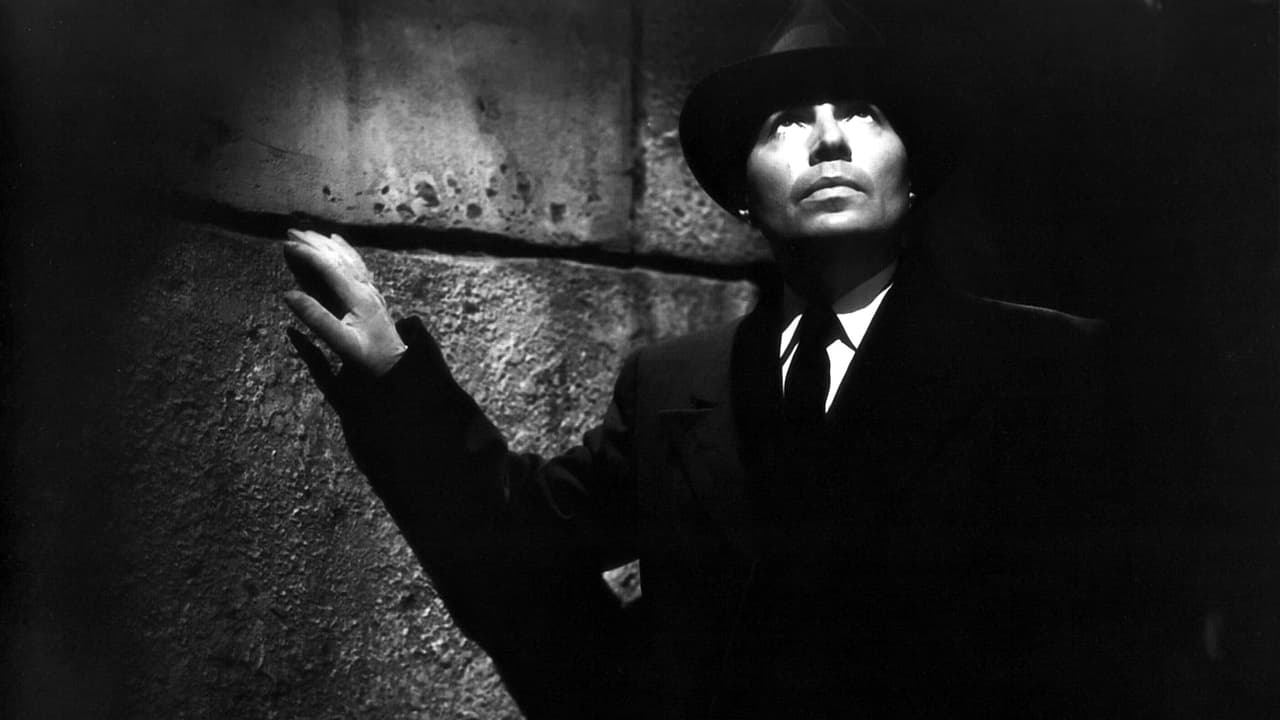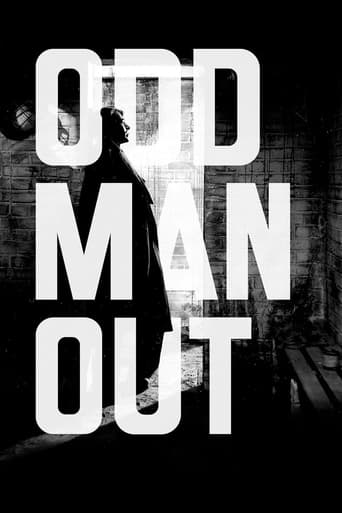

Stylish but barely mediocre overall
... View MoreCrappy film
... View MoreIf you like to be scared, if you like to laugh, and if you like to learn a thing or two at the movies, this absolutely cannot be missed.
... View MoreThe biggest problem with this movie is it’s a little better than you think it might be, which somehow makes it worse. As in, it takes itself a bit too seriously, which makes most of the movie feel kind of dull.
... View MorePicaresque film that ebbs and flows. Well-made but at times ebbs for too long. Strangely, though Mason central to plot he does not occupy the screen. It is those around him that the film concentrates on. F.J. McCormick steals the show as Shell and Robert Newton also as an artist wanting to catch the look of death on canvas.
... View MoreODD MAN OUT is unusual thriller that leaves a lasting impression. It is based on a somewhat neglected novel. Authentic scenery, great noir atmosphere and amazing this performance of major actor are the values of this film. It was exciting to watch noir in slightly different terms. The film appears quite a number of protagonists who are in some way connected with the main character. They are woven into the physical and mental suffering of the main character. In the end I wondered if "chase" the right word. By unifying concept, the story boils down to this. I think it is still more appropriate term "escape to the final knowledge", because the main character in every way trying to escape, and every time returns to the beginning.To make it more dramatic, emotional and visual expression is complemented a great atmosphere in the form of darkness, rain and snow. It is natural that a man who runs away and no way to flee, driven into a corner, physically and emotionally drained, starts to question the philosophy of life. It is interesting that the other characters through the tragedy of the main character trying to make sense of faith, love, family, profession ....Johnny McQueen (James Mason) is a fugitive and frightening illustration of human suffering, agony and nausea. The drama is not based on justice or morality, but on the suffering human being.One compelling, intriguing thriller and a real experience of noir.
... View MoreAtmospheric and visually impressive story that is metaphoric and at times mesmerizing. Most film buffs are bewitched by this and rant endlessly about its greatness and maybe so. It sure is complex and uncompromising in a lot of ways but it takes a great amount of effort on the viewers part to sustain the wonderment for such a lengthy film. It could have been just as powerful and not as plodding and heavy going if it was a bit thinner. The great hypnotic and hallucinatory images and the stylish touches keep things together albeit at a very slow pace and there are some interesting and some irritating characters. Wildly cinematic allegories and parables aside, it is unapologetically European and pure film noir to be ethnocentric, is almost always American. The British efforts somehow seem more maudlin and self conscious and their urban milieu is inevitably physically war-torn rather than pathological and therefore a separation and categorization of of the two types of the noir style is necessary.The cultural separation is significant and therefore this should be labeled as an excellent example of foreign film-noir.
... View MoreIt's just after the war in Belfast, Northern Ireland, and James Mason, as Johnny, has escaped from prison after spending years there. Now he's holed up in an apartment. With the help of four or five fellow members of "The Organization," he plans the robbery of the pay office of a mill.Unfortunately, after his prison experiences, Mason's nerves are shot. He's subject to dizzy spells. The woman who loves him, Kathleen Ryan, tries to dissuade him from leading the robbery, but Mason insists.It doesn't go well. In a scene filled with suspense and verisimilitude, Mason stumbles when leaving the mill, tangles with an armed guard and kills him, while he himself is seriously wounded. Mason manages to hang on to the getaway car for one or two blocks, then falls off onto the street and lurches into an alley to escape the police who have now been alerted. Mason is a revolutionary, a thief, and now a murderer but our sympathies are largely with him.That scene in which he falls from the car is exquisite. Dan O'Herlihy and Roy Irving are trying to hold him, his legs hanging outside, but his wounded body slips from their grasp and he rolls over and over in the middle of the road. The driver, Cyril Cusack, speeds on for another block before screeching to a halt. The three men sit in the motionless car and shout angry accusations at one another while they stare back at Mason's body, uncertain of whether to back up or cut around the block and pick him up. As they unleash their anger and indecision, Mason disappears into a maze of brick alleys and shabby housing.For the rest of the film, Mason may be the central figure, hallucinating and bleeding to death as he's wanders alone on the cobblestone streets, tugged this way and that by frightened citizens who don't want to get involved, dumped in a field full of discarded bathtubs and toilets, or locked away in the private booth of a pub run by a nervous owner, but he's essentially passive. The people into whose lives he staggers all have different plans for him. The weather meanwhile changes from sunny afternoon, to twilight, to rain, and then to a generous snowfall.There isn't space enough to list all the virtues of this superb film, but Carol Reed's direction is magnificent. The photography by Robert Krasker captures the slick streets and the stark poverty of the city's poor with a dispassion that's almost clinical and, in addition, adds dramatic shadows and lighting techniques that adumbrate Reed's later "The Third Man".The cast could hardly be bettered. O'Herlihy and Cusack are fine as the two stupid and impulsive gang members who are out searching for Mason among the brick ruins but decide to stop at the local whore house for a drink. Robert Newton, as a tempestuous artist, wants to save the dying light in Mason's eyes. W. G. Fay as the priest wants to save his soul. Elwyn Brook Jones as the medical-school drop out wants to save his body. F. J. McCormick as the weaselly Shell wants to schlep Mason to the church in hopes of being given a reward by Father Tom, a reward of renewed faith that Shell somehow confuses with material wealth. ("The Pope has a lot of money, and a man's got to live.") There's a comic element that surfaces in this prolonged tragedy from time to time. Much of it stems from the unpretentious folk poetry that ordinary Irish speech is sometimes transformed into. It's colorful, innovative, and not in any way forced. Nobody is a caricature. Nobody is Barry Fitzgerald. These actors, even in minor parts, have real faces and the complex personalities to go with them. Father Tom, the priest, is the most admirable character, a white-haired old gnome who speaks common sense in a way no one else does, except perhaps Dennis O'Dea as the Police Inspector, who has a stony face and an arid voice but who sees not "good and bad" but "innocence and guilt." I can't recommend this too highly.
... View More